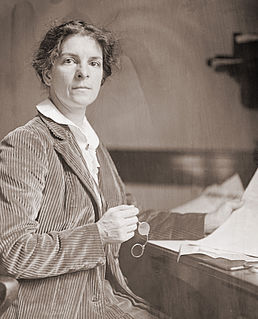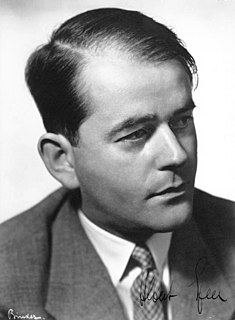A Quote by Robert Hass
It was one of the great mass achievements of American civilization, and we did it because we thought if you were going to have a democratic form of government, people had to be able to read and understand complicated ideas on their own.
Related Quotes
Most people are shaped to the form of their culture because of the enormous malleability of their original endowment. They are plastic to the moulding force of the society into which they are born. It does not matter whether, with the Northwest Coast, it requires delusions of self-reference, or with our own civilization the amassing of possessions. In any case the great mass of individuals take quite readily the form that is presented to them.
In a different moment, in the 60s and 70s, I did believe we were going to succeed - that we were going to create a revolution, that America was going to be a completely transformed nation state and that there would be an amazingly different set of beliefs; that this country would reflect. And I thought that that was the fulfillment of the American democratic dream and I believed in it passionately.
This time I m not going to tell you a story. I'll just say that insanity is the inability to communicate your ideas. It's as if you were in a foreign country, able to see and understand everything that's going on around you but incapable of explaining what you need to know or of being helped, because you don't understand the language they speak there.
The Americans had not played a very prominent part in the war of 1914-1918, he (Adolf Hitler) thought, and moreover, had not made any great sacrifices of blood. They would certainly not withstand a trial by fire, for their fighting qualities were low. In general no such thing as an American people existed as a unit; they were nothing but a mass of immigrants from many nations and many races.
Civilization just takes it as a given that the whole world was flooding. Then science came and you had geology and modern astrophysics, and time became well understood going back billions of years. So enlightened religious people, as a necessity, had to shed the magical elements of the Bible. A little known fact is that Thomas Jefferson did just that. There's something called the Jefferson Bible. It's not widely publicized because it sort of conflicts with certain people's ideas of what the founding fathers were.
No one in this world, so far as I know--and I have searched the records for years, and employed agents to help me--has ever lost money by underestimating the intelligence of the great masses of the plain people. Nor has any one ever lost public office thereby. The mistake that is made always runs the other way. Because the plain people are able to speak and understand, and even, in many cases, to read and write, it is assumed that they have ideas in their heads, and an appetite for more. This assumption is folly. They dislike ideas, for ideas make them uncomfortable.
I thought I was going to be able to use my painting ideas as decoration on pottery, but my painting did not translate into decoration on pottery. I thought it was going to, and in fact I made, while still in school, a plate with one of my paintings on it, and that's exactly what it was, it was a plate with a painting on it. It was not a decorated plate; it was just a painting superimposed over a three-dimensional ceramic form.
I am very optimistic about - about Iraq. I mean, this could be one of the great achievements of this administration. You're going to see 90,000 American troops come marching home by the end of the summer. You're going to see a stable government in Iraq that is actually moving toward a representative government.
Regarding some of the super powers that I reference, like walking on water, I haven't seen people do that, but once you get into the science, a lot of it starts to make a lot of sense, for example, like people being able to read your mind. It's very logical, because words are just a grosser form of thought, and thought is just a grosser form of feeling.
We feel an affinity with a certain thinker because we agree with him; or because he shows us what we were already thinking; or because he shows us in a more articulate form what we were already thinking; or because he shows us what we were on the point of thinking; or what we would sooner or later have thought; or what we would have thought much later if we hadn’t read it now; or what we would have been likely to think but never would have thought if we hadn’t read it now; or what we would have liked to think but never would have thought if we hadn’t read it now.
When the great religious and philosophical conceptions were alive, thinking people did not extol humility and brotherly love, justice and humanity because it was realistic to maintain such principles and odd and dangerous to deviate from them, or because these maxims were more in harmony with their supposedly free tastes than others. They held to such ideas because they saw in them elements of truth, because they connected them with the idea of logos, whether in the form of God or of a transcendental mind, or even of nature as an eternal principle.







































